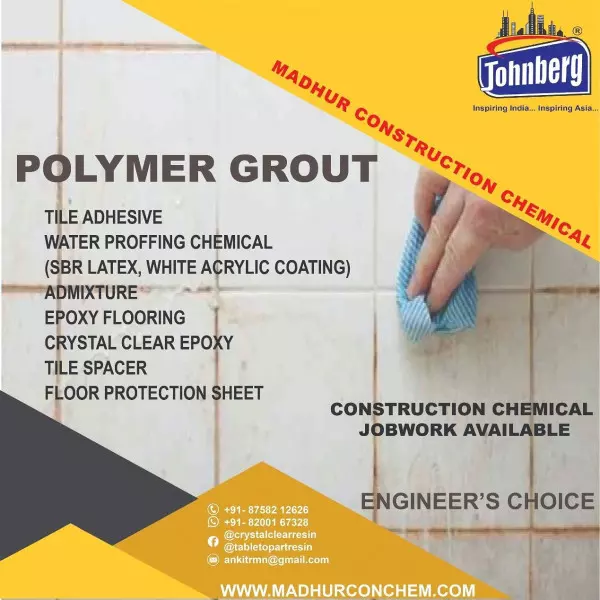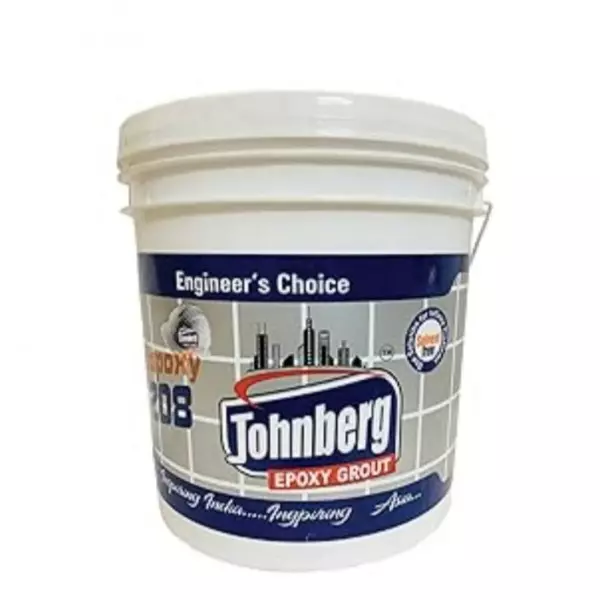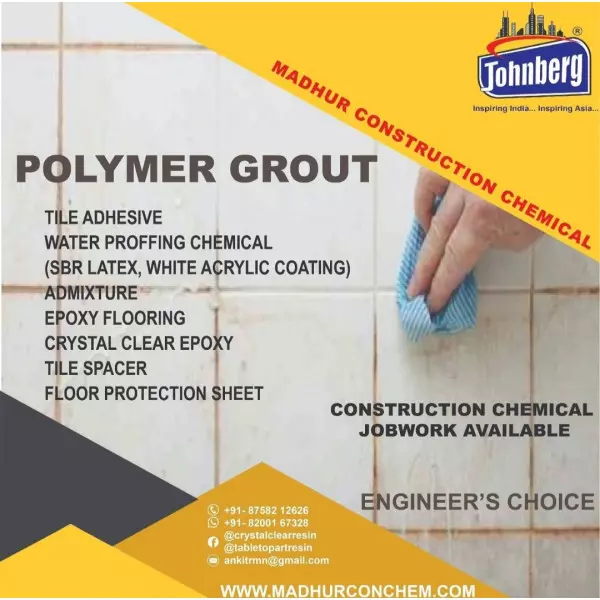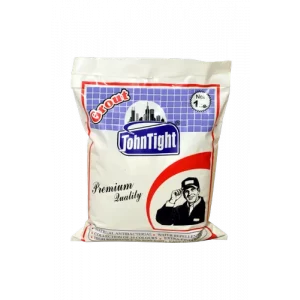- Home
- About Us
- Products
- Resin Furniture
- 3D Epoxy Flooring Service
- Resin Table Top
- Wooden Epoxy Resin Table Top
- Metallic Epoxy Flooring Service
- Conception Chemical Consultants
- Chemical Consultancy For Construction
- Construction Chemical Consultant
- Tile Grout
- Foundation Grout Consultant
- Paver Block Chemical Consultant
- Waterproofing Chemical Consultant
- Epoxy Pigment Consultant
- Heat Reflective Coating
- Water Repellent Coating
- Epoxy Grout
- Chemical Consultant
- Industrial Chemical
- Construction Chemical
- Epoxy Resin
- Epoxy Coating
- Polyester Resin
- Joint Sealants
- Cristal Clear Epoxy Resin And Hardner
- Construction Chemicals
- Polycarboxylate Ether And Liquid
- Solvent Cement
- Tile Protection Sheet
- Water Reducing Superplasticizer
- Epoxy Resin And Hardeners
- Two Component Waterproof Coating
- Epoxy Floor Coatings
- Casting Resin
- Sbr Latex Polymer
- Epoxy Grout Formulations
- Epoxy Resin Tabletops
- Tile Spacers
- Tile Levelling Spacers
- Industrial Night Vision Epoxy Grout
- Sbr Latex
- Johnberg Marble Polishing Liquid
- Acrylic Elastomeric Coating
- Weber Tile Adhesives
- Decorative Arts
- Resinic Crafts
- PU Flexible Tile Adhesive
- Resin Pressed Flowers
- Dry Pressed Flower
- Epoxy Putty
- Resin Furniture
- Services
- Updates
- Gallery
- Contact Us
Polymer Modified Grout Manufacturer In Kerala
Details of Polymer Modified Grout
Polymer modified grout is a type of grout that contains added polymer materials to improve its performance. These polymers enhance the strength, flexibility, and adhesion of the grout compared to traditional cement-based grout. Polymer modified grout is commonly used in tile installations and repairs, especially in areas exposed to moisture, movement, or temperature changes. It offers better resistance to cracking, shrinking, and staining, making it suitable for both interior and exterior applications.
Offered Product
Polymer Modified Grout
BrandJohnbergUsage/ApplicationConstructionJoint Width5mmPackaging Size5 KgShelf Life24 MonthsDensity1.2Temperature120 Degree CelsiusMaterialCementPackaging TypePP Bagohnberg Brand Epoxy Grout For Tiles Grouting Application. High Strenght, Stain Proof, Easy To Use And Easy Ro Clean Application.... Read morePolymer Modified Grout Manufacturers In Nagpur
Polymer Modified Grout Is A Type Of Cement-based Grout That Includes Added Polymers To Improve Its Performance. These Polymers Are Usually In The Form Of Liquid Latex Or Dry Redispersible Powders. Polymer Modified Grout Is A Cementitious Grout Blended With Polymer Additives To Enhance Strength Flexibility Water Resistance And Adhesion Continue
Polymer Grout Manufacturers In Kanpur
Polymer Grout Is A Type Of Grout That Uses Polymers—synthetic Or Natural Organic Materials—instead Of Or Along With Traditional Cementitious Materials. It Is Known For Its Superior Performance In Terms Of Strength, Durability, And Chemical Resistance. Polymer Grout Is Made By Combining A Polymer Resin With A Hardener And Filler Materials. Common Polymers Used Include Epoxy, Polyurethane, And Polyester Resins. Continue
Polymer Modified Grout Suppliers In Vijayawada
Drawing On Our Extensive Industry Experience, We Produce A Premium Line Of Polymer Modified Grouts That Are Engineered For High Strength, Durability, And Superior Bonding Performance. Made With Top-tier Polymers And Carefully Selected Additives, Our Grout Ensures Excellent Adhesion To Concrete, Steel, And Masonry Surfaces. It Offers Remarkable Resistance To Shrinkage, Chemical Exposure, And Moisture Infiltration, Making It An Ideal Choice For Heavy-duty Industrial Flooring, Machinery Foundations Continue




